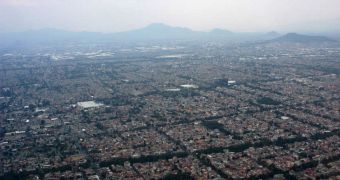Studies are beginning to show that large, heavily-exploited urban areas are the most unprepared habitats in the face of global warming, and the climate change it produces. As such, the most disastrous consequences of these events could be recorded in metropolises.
Two of the most important environmental changes associated with global warming are heat waves and sea level rise, to which billions of people living in coastal cities around the world are vulnerable to.
The sad thing is that nearly none of these urban centers has ever taken measures to ensure that this risk their population is subjected to is reduced in any way. This conclusion belongs to a new study of urban policies applied at locations around the world.
The research was conducted by experts with the Boulder, Colorado-based National Center for Atmospheric Research (NCAR), who were led by research scientist Patricia Romero Lankao.
According to the new conclusions, developing urban centers in the Second and Third World are the most likely to experience disproportionate, negative side effects from climate change. In addition, nearly none of the cities studied had any initiative in place to reduce pollution.
Emissions of greenhouse gases that heat Earth's atmosphere, including carbon dioxide, remain unaffected by any type of regulations. Only feeble attempts have thus far been made to reduce CO2 emissions, but their overall effect is non-existent.
“Climate change is a deeply local issue and poses profound threats to the growing cities of the world. But too few cities are developing effective strategies to safeguard their residents,” Romero Lankao argues.
Details of the research will appear in an upcoming synthesis article, to be published in the journal European Planning Studies. The data have already been published in an April special issue of the scientific journal Current Opinion in Environmental Sustainability.
Funding for this study was provided by the US National Science Foundation (NSF). The initiative also included experts from the United Nations Human Settlements Program (UN-HABITAT).
“Cities are major sources of greenhouse gases, yet at the same time urban populations are likely to be among those most severely affected by future climate change,” explains Sarah Ruth.
“The findings highlight ways in which city-dwellers are particularly vulnerable, and suggest policy interventions that could offer immediate and longer-term benefits,” the expert adds.
Ruth holds an appointment as a program director in the NSF Division of Atmospheric and Geospace Sciences. The DAGS is the main sponsor of NCAR.

 14 DAY TRIAL //
14 DAY TRIAL //